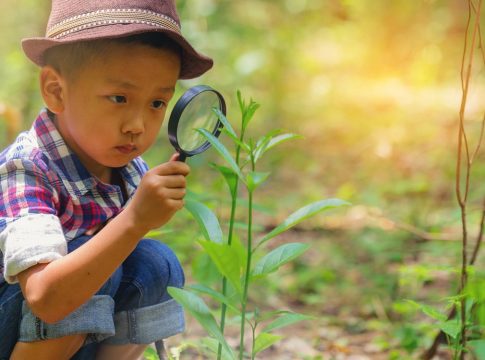The Power of Childhood Curiosity: A Pathway to Wellness in Adulthood
In the landscape of mental health, understanding our emotional foundations from childhood can illuminate pathways to well-being. Recent research sheds light on the significant role that curiosity in our formative years can play in shaping emotional resilience as adults.
Curious Minds and Emotional Resilience
A study derived from the 2020 China Family Panel Study investigates the connection between childhood curiosity and adult depression. This large-scale research, analyzing over 17,000 participants, reveals an interesting correlation: individuals who recognized a sense of curiosity during childhood tend to report fewer depressive symptoms in adulthood.
What is Curiosity?
Curiosity is more than just a desire to know; it’s a crucial trait that encourages exploration and learning. As children, being curious means seeking out new experiences and asking questions, which can lay a foundation for emotional and cognitive flexibility. This flexibility can help individuals navigate life’s challenges with a positive outlook.
The Role of Future Confidence
One of the study’s intriguing findings is the link between childhood curiosity and what the researchers describe as future confidence—essentially, a belief that positive outcomes await us. This optimism seems to mediate the effects of childhood curiosity on adult depressive symptoms.
Key Insights:
- Childhood curiosity is associated with a more positive view of the future.
- Greater confidence about what lies ahead can diminish the feelings of sadness and hopelessness often linked with depression.
Not Just a Weak Connection
It is important to acknowledge that the association found in this study, while promising, is described as relatively weak. This means it is just one piece of a larger puzzle in understanding mental health. The reliance on adult recollections of childhood curiosity introduces room for potential biases, reminding us that self-reported experiences can sometimes be clouded by time and memory.
Moving Forward: Cultivating Curiosity
How can we harness the power of curiosity in our daily lives to foster emotional well-being? Here are some gentle suggestions:
-
Encourage Open Exploration: Allow yourself and those around you to ask questions and seek new experiences. Whether it’s diving into a new hobby, exploring nature, or simply learning about different cultures, embrace the journey of discovery.
-
Cultivate Optimism: Actively challenge negative thoughts by focusing on potential positive outcomes. Journaling about your goals and aspirations can help reinforce a hopeful mindset.
- Practice Mindfulness: Engage in mindfulness practices that promote awareness and presence. This can cultivate a receptive attitude toward life’s experiences, making space for curiosity to flourish.
Conclusion: A Nurturing Perspective
The findings from this study remind us of the intricate interplay between childhood experiences and adult mental health. Engaging our natural curiosity can be a profound gift—not only for our own well-being but also for those around us. While the connection between curiosity and depression might vary from person to person, nurturing this trait in ourselves and in our children can lead to a more hopeful and resilient future.
In a world where the challenges of mental health are prevalent, let us embrace curiosity as a pathway toward understanding, healing, and growth.

Covers wellness, nutrition, mental health, and daily life tips.
Bio: Talia brings a background in health journalism and holistic living to help readers live better, one tip at a time.

